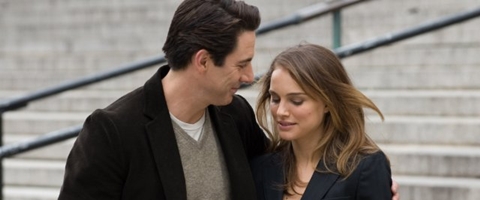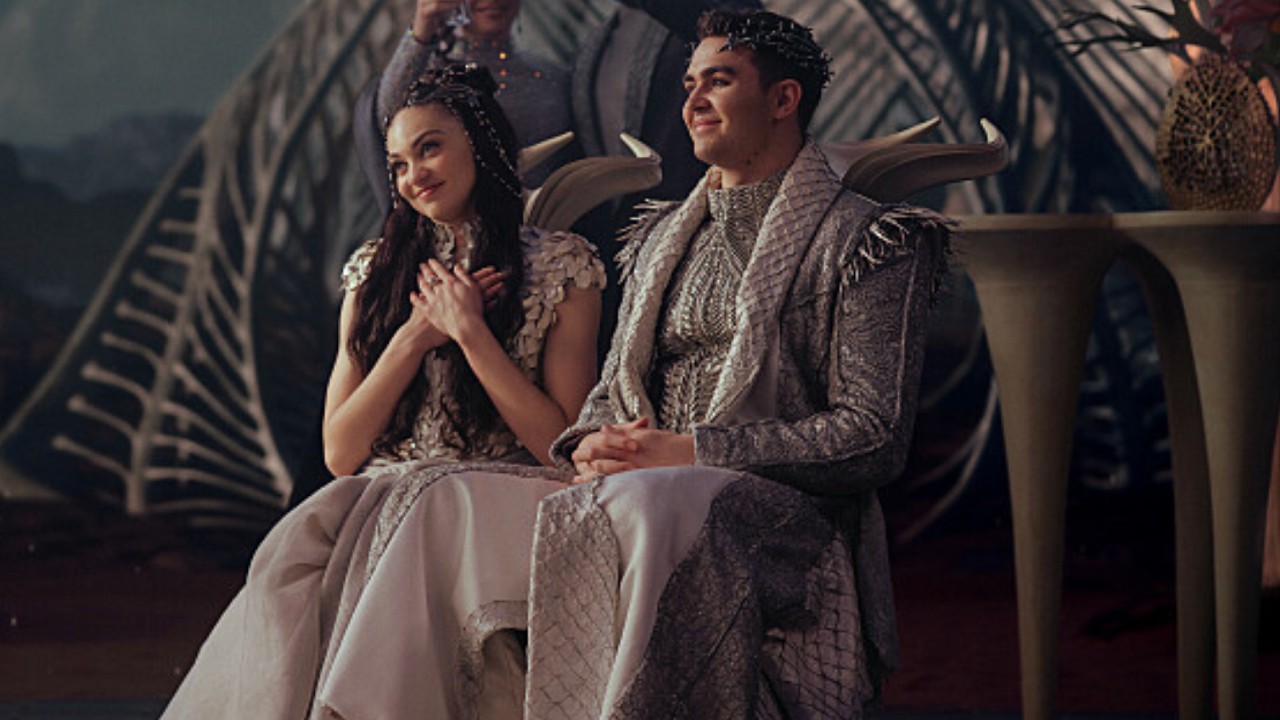Character studies are tough. Any film that attempts to be less plot driven and more focused on people runs the risk of being stale as left-out Orange Crush or too singularly focused in a mindset with which audiences won't identify. With Natalie Portman at the helm and a bestselling novel to back up the script, The Other Woman looked like it was poised to be one of those careful, rewarding, character-oriented films that comes along once in a blue moon. Unfortunately, while The Other Woman does avoid the usual pitfalls, it only manages to play out like a violin with one broken string, whining about its modestly annoying condition like it’s the end of the world. In the first scene of The Other Woman, we meet Emilia (Portman), a young woman who is waiting for a child at a very nice-looking school. It is soon revealed that Emilia is the stepmom of the child (Charlie Tahan). The other mothers in the school are not happy about this. Apparently, Emilia had an affair that led to a divorce and a sticky situation between stepmom and stepson. Soon after this, through several particularly clumsy flashback sequences, we see Emilia’s relationship unfold with now-husband Jack (Scott Cohen). Jack leaves his wife (Lisa Kudrow) when he finds out Emilia is pregnant, but now, over a year later, the baby has died, Emilia is morose and bitter, and Jack and Emilia’s relationship is strained. At this point, The Other Woman has become some weird hybrid between Rabbit Hole and One Life to Live.
If we were into commiserating, this might be the perfect fit. But in the particularly fucked social network in which Emilia subsists, she is so comforted by her own misery that she lashes out, proves inept at taking care of the child still in her life, and strains every respectable relationship she’s built. Emilia proves to be selfish, impetuous, and sometimes just impulsively cruel. She seems to have gotten away with this in the past by being self-motivated and surrounding herself with weak friends and lovers. Nonetheless, when she’s finally called out on her constant behavior, she can only whine, “You’re a lawyer, Jack, argue me out of it.”
By then no one wants to argue her out of anything, audience included. We’ve all been dragged around like a sailboat with no wind for long enough. It would be one thing if director Don Roos wanted to give Emilia a chance to figure out her mistakes and work on her relationships. It would be another thing if Roos had bothered to give us a full understanding of why Emilia behaves so poorly. Instead, we get a wild side plot concerning Emilia’s father (Michael Cristofer) as our only positive in this melodramatic saga. Even here, “positive” is a stretch; Emilia tries to mend her relationship with her father, but she does so looking through a selfish “I did a good deed” lens.
Sometimes people choose themselves over everyone else. This is a fact. Some characters -- Renton from Trainspotting comes to mind -- have even portrayed this “me” factor incredibly en pointe, and even likeably. The Other Woman doesn’t fail because it has a selfish protagonist. The Other Woman fails because its protagonist is unlikeable and because the direction of the film is shoddy. Then it burns bridges because it chooses to leave a gaping hole between its awful protagonist and its thankless supporting roles. The Other Woman is not even worth coming up with a succinct sentence to sum up how bad it is. Just don’t watch it. It would be best if we didn’t give The Other Woman any reason to be re-released when the next wave of technology comes around. Basically, there’s nothing here. There’s a trailer and your basic chapter and subtitle toggles, and nothing more. In case you were wondering, the trailer is alright. Don’t let it fool you. Insufferable people are always better in three-minute doses.
Your Daily Blend of Entertainment News

